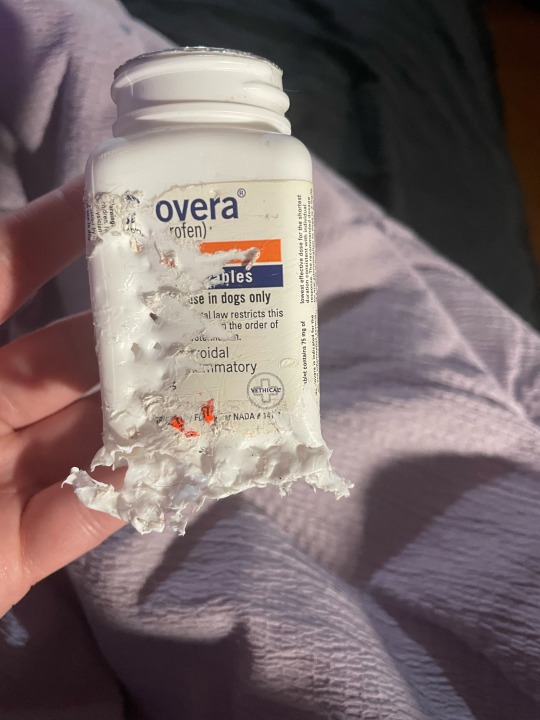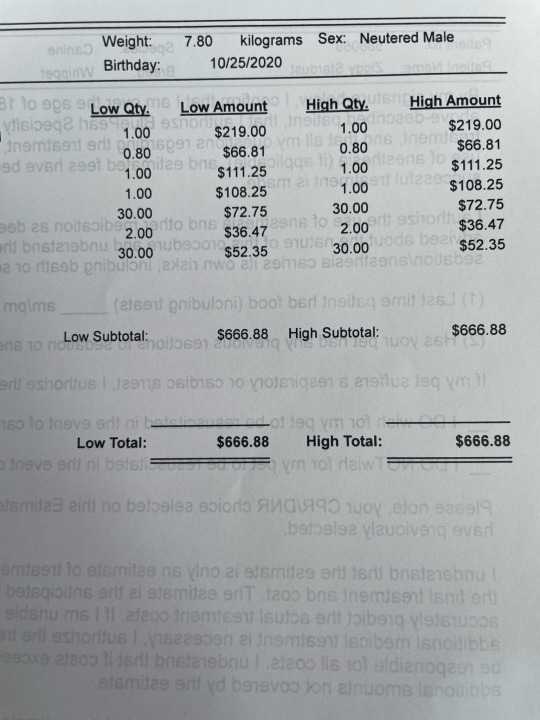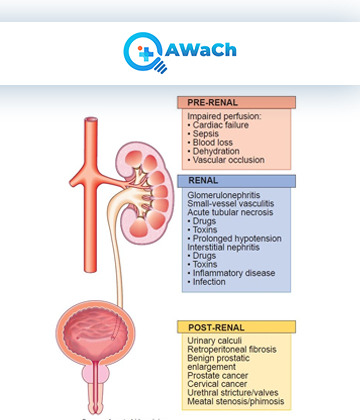#Acute Kidney Injury
Explore tagged Tumblr posts
Text

#Acute Kidney Injury#acute kidney injury symptoms#Acute kidney injury treatment#causes of acute kidney injury
0 notes
Text
https://www.merexpression.com/read-blog/138286_acute-kidney-injury-essential-facts.html
0 notes
Text
A Comprehensive Guide on Homeopathic Kidney Treatment
Kidney-related illnesses pose a significant health problem across the globe and affect millions of people. Traditional treatments, though efficient, can have numerous side effects and may not be able to address the root of the problem. There's been an increase in interest in alternative treatments in recent years, with kidney treatment by homeopathy emerging as a promising option.

Understanding Homeopathy and its Principles
Homeopathy is an extensive medical system that aims to boost the body's natural healing capabilities. It is based on the concept that "like cures like" and the law of a minimum dosage; the treatments are formulated from highly dilute substances, which makes them non-toxic and free of side consequences. This gentleness method aligns with the complex nature of kidney problems.
Homeopathic Medicine for Renal Cysts
Renal cysts are sacs filled with fluid that form on the kidneys. They may cause pain and other complications if not treated. Homeopathic medicine for renal cysts provides an alternative that is non-invasive and organic to control renal cysts. These remedies are well-known for their effectiveness in decreasing size and relieving the associated symptoms. In consideration of the patient's particular symptoms and body constitution, individualised treatment is an essential component of homeopathic treatment for kidney cysts.
Homeopathic Remedy for Kidney Infections
Kidney infections are characterised by inflammation and kidney infections and require immediate attention. Homeopathic medicines, which focus on improving your immune system, can help combat kidney infections. Homeopathic remedy for kidney infection
are commonly used to treat issues like discomfort and burning as well as urinary discomfort. Furthermore, constitutional drugs are prescribed to improve general health and reduce the chance of repeat incidences.
Kidney Cyst Treatment Using Homeopathy
The treatment of kidney cysts includes not just shrinking existing cysts but also stopping the development of new cysts. Homeopathic remedies are often employed to address the root causes that cause cyst. The remedies aim to enhance kidney function, decrease inflammation, and help restore the balance of the body. They provide a complete kidney cyst treatment.
Homeopathy for Acute Kidney Injury
Acute kidney damage (AKI) is an abrupt and usually reversible decrease in kidney function. Homeopathy may complement traditional treatments by addressing the root reasons and aiding recovery. The remedies are selected according to the particular signs and conditions accompanying the AKI. Homeopathic remedies concentrate on reducing inflammation, enhancing kidney blood flow and assisting in the overall function of the kidneys.
Homeopathic Medicine for Kidney Failure
Kidney dysfunction is a severe disease in which kidneys cease their ability to function normally. Homeopathy kidney treatment can assist in reducing symptoms that are associated with kidney disease, like swelling, fatigue, and fluctuations in urine output. Homoeopathy treatment is customised to treat the individual's specific symptoms and enhance the quality of their life.
Acute Kidney Injury Treatment in Homeopathy
Acute kidney damage requires immediate treatment, and homeopathy is an alternative to traditional treatment. Signs like fever, swelling and a change in the amount of urine produced select homeopathic remedies. Treatment for acute kidney injuries aims to aid the kidney's natural healing processes, reduce inflammation, and improve overall recovery.
Conclusion
Ultimately, homeopathy offers an integrated and personalised method of treating kidney disease. When treating renal cysts, kidney cysts, kidney infections or acute kidney injuries and kidney problems, homeopathic medicine for kidney failure seeks to tackle the issue's root and enhance overall health. It is crucial to remember that homeopathy should only be administered under the supervision of a trained and qualified practitioner of homeopathy, along with traditional medical treatment. Incorporating homeopathy into kidney health plans shows a complete and patient-centred approach to renal health.
#Kidney treatment by homeopathy#homeopathic medicine#homeopathic remedy#kidney cyst#homeopathy kidney#acute kidney injury
0 notes
Text

Acute Kidney Injury (AKI), also known as acute renal injury, is a serious condition that causes a sudden and rapid decline in kidney function. If not promptly diagnosed and treated, it can lead to severe complications. In this detailed exploration of AKI, we will discuss its stages, causes, and the signs and symptoms that can aid in early detection.
0 notes
Text
Urinary NGAL
Urinary NGAL (Neutrophil Gelatinase-Associated Lipocalin) refers to the measurement of NGAL levels in urine.
Healthcare professionals measure urinary NGAL levels using immunoassay techniques to detect and monitor kidney injury using NGAL. NGAL, a protein, is produced and released by various cells, including neutrophils (a type of white blood cell) and epithelial cells of the kidneys. NGAL serves as an early marking of kidney injury or insult, playing a role in the assessment and early detection diagnosis of acute kidney injury (AKI).When the kidneys are injured or under stress, NGAL levels increase rapidly in both blood and urine. Urinary NGAL Laboratory tests can measure levels to detecting and monitoring kidney injury. This will be especially valuable for early identification of. AKI, allowing for timely intervention and management.

0 notes
Text
Acute Kidney Injury Following Caesarean Section: A Case Report
Kathawadia K; Aboda A*; Khanal N; McCully B
Department of Obstetrics & Gynaecology, Mildura Base Public Hospital, Australia
*Corresponding author: Ayman Aboda Department of Obstetrics & Gynaecology, Mildura Base Public Hospital, Australia. Email: [email protected]
Received: April 27, 2023 Accepted: May 18, 2023 Published: May 25, 2023
Abstract
Acute Kidney Injury (AKI) is an infrequent pregnancy complication, often associated with Nonsteroidal Anti-Inflammatory Analgesics (NSAIDs) during the postpartum period. In this case study, a multiparous, 27-year-old woman presented to the Emergency department on day six after an uncomplicated Caesarean section with severe lower back pain. She was diagnosed with AKI and was admitted for management under a multidisciplinary team. Following appropriate treatment, she was discharged with complete recovery. Managing AKI postpartum requires meticulous and collaborative intervention to prevent potential long-term complications.
Keywords: Acute kidney injury; Post caesarean section; NSAIDs
0 notes
Text
I’m sorry if this is annoy truly I am I just need to keep trying.





This is the medication Ziggy Stardust got into. Please share ❤️
#good dogs#gofundme#dogs are family#ilovemydog#esa dog#emergency fund#emergency vet#dogs of tumblr#love dogs#dogsoflove#whippet#acute kidney injury#please help#mental health
19 notes
·
View notes
Text
Acute Kidney Injury Nursing Diagnosis, Causes & Symptoms
Acute kidney injury AKI often occurs in conjunction with other medical conditions or events. Illinois College Of Nursing tuition offers a comprehensive understanding of this condition.
0 notes
Text
I think the CDC is gonna text me at this point
#my search history#strep throat AND covid ?#192 heart rate safe?#Acute kidney injury covid#'acidemia' ??#white streaks in throat#bilsaliar lung crackles?#I'm starting to think I need a biohazard sticker on my snapback
1 note
·
View note
Text
Acute Kidney Injury
Acute kidney injury (AKI), previously known as acute renal failure, represents a medical emergency and encompasses a wide range of damage to the kidneys
(AKI) occurs when kidney function rapidly deteriorates, leading to an inability to maintain fluid, electrolyte, and acid-base balance. It contributes to increased morbidity and mortality. The severity of AKI results in significant healthcare costs. Consequently, there is a heightened focus on identifying new biomarkers for AKI. Detecting AKI earlier would ultimately preserve lives, improve patients' quality of life globally, and reduce healthcare system expenses.

0 notes
Text
Writing Notes: Some Causes of Death

Advancing years – old age (Acceptable if deceased was aged 80 or over)
Alcohol abuse [Acceptable if long standing (chronic), refer to coroner if sudden (acute)]
Blood poisoning (septicaemia)
Bowel obstruction
Brain failure
Cancer
Cardiac arrest*
Coma*
Dehydration
Exhaustion*
Farmer's lung (caused by exposure to dust from moldy hay, straw, and grain)
Fracture
Gangrene
Heart attack
Hypertension
Hypothermia
Influenza
Injury
Ischaemic heart disease
Kidney stones
Liver failure
Malnutrition
Medical techniques
Meningitis
Multiple organ failure
Renal/kidney failure*
Respiratory arrest*
Septic shock
Stroke
Syncope*
Tetanus
Toxicity
Tuberculosis
Urinary tract infection
Ventricular failure
*An example of "mode of death". A "mode" of dying is one which does not explain "why". For example, "coma" does not explain the underlying condition leading to death.
Source ⚜ More: References ⚜ Writing Resources PDFs
#writing notes#writing reference#writeblr#literature#dark academia#writers on tumblr#spilled ink#writing prompt#creative writing#light academia#writing ideas#writing inspiration#charles de steuben#writing resources
73 notes
·
View notes
Text
i dont have:
pto hours
savings
i do have:

I'VE GOT SHINGLES! and i have NO pto and i have NO savings left because this year has been devastating in terms of health issues. (Cancer scare, reccurent kidney infection, sepsis, acute lung failure, shoulder injury, NOW THIS.) 2024 wants me dead SO BAD SO SO BAD
I'm trying not to stress because I'm stressed enough but I barely made rent last week after missing so much work. I'm not worried about losing my job right now but i AM worried that I don't have enough money to pay bills and buy food and make next month's rent. I had to leave work early yesterday to go to urgent care because the pain was so intense I couldn't work through it. My time card looks like shit
I don't even know what else to say but if you wanna send me a tip here's my ko-fi. Kicks a hole through the earth!
111 notes
·
View notes
Text
0 notes
Text
Examining the Repercussions of High Creatinine Levels
The kidneys are remarkable organs essential for maintaining the general health of your body. In addition to helping control electrolyte balance, blood pressure, and red blood cells, they remove waste and excess fluid from the bloodstream. However, many causes can cause kidney problems, ranging from acute damage to chronic kidney disease.
Knowing Acute Kidney Damage: Causes, Signs, and Treatment
Acute Kidney Damage
An acute kidney injury (AKI) is the medical term used to describe the immediate impairment of renal function. It can be experienced in just a few hours or even days. AKI is a serious illness that requires treatment promptly. Many things, like extreme dehydration, infections, certain drugs, as well as trauma to the kidneys, can result in AKI.
The reduction in urine production, the retention of fluids, exhaustion, disorientation, and edema are among the signs that are a sign of AKI that may develop into serious and may cause severe kidney failure. Edema, also known as swelling due to kidney failure, is the result of the body's inability to remove enough fluid. This causes puffiness, particularly in the ankles, legs, and the area near the eyes. Early diagnosis and treatment are crucial to prevent kidney disease from getting any worse.
Comprehending Chronic Kidney Disease (CKD): Indications, Signs, and Treatment
CKD
The long-term condition called chronic kidney disease, also known as CKD, can cause the kidneys to cease to function normally gradually. In the long run, CKD development is feasible and often goes unnoticed until it has reached the stage of advanced. CKD is typically caused by high glucose, high blood pressure, or other genetic conditions.
Edema, fatigue, higher urinary frequency, increased blood in the urine, and elevated blood pressure are among the symptoms and signs of chronic kidney illness. Anemia, bone disease, and cardiovascular complications may develop when the condition gets worse. The early detection of and the treatment are vital to regaining health.
The treatment of the Kidney in case of acute kidney damage
To aid in the recovery of kidneys, support treatment is frequently provided along with the treatment of acute kidney damage that addresses the root causes. Certain drugs that may harm kidneys must be halted or taken less frequently.
If you want to know for kidney treatment homeopathy, then you can visit my original blog. The link has been provided below:
https://bharathomeopathy.com/disease/kidney-failure-treatment
#Kidney treatment by homeopathy#kidney failure#High creatinine levels#homeopathic medicine for kidney failure#swelling due to kidney failure#acute kidney injury
0 notes
Text
Acute Kidney Injury
Acute kidney injury (AKI), previously known as acute renal failure, represents a medical emergency and encompasses a wide range of damage to the kidneys. Acute kidney injury is a rapid deterioration of kidney function, resulting in an inability to maintain fluid, electrolyte and acid-base balance. AKI increase morbidity and mortality, and due to the severity of acute kidney injury, the healthcare costs are significant. As a result of this, increased efforts into identifying new acute kidney injury biomarkers can be seen. Earlier diagnosis of AKIwould ultimately save lives, raise the quality of life for patients worldwide and save costs for the healthcare system.
The underlying pathophysiology in AKI is characterised by a complex interaction between predisposing chronic illnesses, haemodynamic disturbances, nephrotoxic insults and inflammatory responses leading to tubular cell injury and eventually a fall in glomerular filtration rate. In cardiovascular disease, acute kidney injury (AKI) is associated with increased morbidity and mortality. In 2005, a landmark study of 71 children undergoing cardiac surgery showed that urine Neutrophile Gelatinase-Associated Lipocalin (uNGAL) and plasma NGAL (pNGAL), assessed 2 hours after cardiopulmonary bypass, had a high diagnostic accuracy for AKI (defined as a ≥50% increase in creatinine from baseline). uNGAL’s sensitivity was 100% with an area under the receiver-operating characteristic curve (AUC) of 0.998, and pNGAL’s sensitivity was 70% with an AUC of 0.906. These promising results led to further studies of NGAL in cardiogenic shock, contrast induced nephropathy (CIN), heart failure (HF), sepsis, and critical illness. Within critical illness, septic patients are at significantly increased risk of AKI. In a multicenter study of patients presenting to the emergency department with suspected sepsis, pNGAL strongly predicted AKI with an AUC of 0.82 versus 0.73 for creatinine.
The clinical benefits of a timely and definitive diagnosis of AKI have not been fully realised due to limitations imposed by the use of serum creatinine and urine output to fulfil diagnostic criteria. These restrictions often lead to diagnostic delays, potential misclassification of actual injury status, and provide little information regarding underlying cause. Novel biomarkers of damage have shown ability to reflect ongoing kidney injury and help further refine existing Risk, Injury, Failure, Loss, End-stage kidney disease (RIFLE) and Acute Kidney Injury Network (AKIN) diagnostic criteria.
1 note
·
View note
Text
The Ren that went into that little concrete room on November 20th did Not Come Back Out.
And I don't just mean that from a psychological trauma standpoint, I'm talking physically. Nevermind the lasting chronic pain, I'm talking about potential organ damage. Listen? Listen to me. After analyzing the needles in the cutscene it seems like, even being generous with the average and trying to keep numbers at the low end, they shot him up with an average of 1.5 - 2.0 ml (on a hypodermic needle) between all three needles. That amount could cause an adult to overdose if not flat out kill them.
The 'truth serum' they gave Ren was most likely some concoction of barbiturates or benzodiazepines.
Symptoms of overdose (for both): ✫ Shallow breathing. Difficulty breathing. ✫ Slowed responses. Slurred speech. ✫ Drowsiness or extreme fatigue. Heavy sedation. It may be difficult to rouse the person. ✫ Profuse sweating. ✫ Psychosis. Hallucinations. ✫ Delirium. Confusion. Amnesia.
Long term Complications: ✫ Organ failure – If left untreated, an overdose can cause damage to the heart, liver, and kidneys due to hypoxia or low levels of oxygen in the blood. ✫ Coma and Death – Benzo and Barbiturate overdose can cause respiratory depression, leading to coma and death. ✫ Aspiration pneumonitis – This condition causes acute lung injury from inhaling regurgitated gastric content, which is common in benzo overdose. ✫ Noncardiogenic pulmonary edema – A condition in which fluid builds up in the lungs, making it difficult to breathe. Most often, the buildup of fluid is caused by a pressure imbalance within the heart, but other causes can also send excess fluid to the lungs. ✫ Rhabdomyolysis – A condition where muscles break down and release damaging proteins into the bloodstream. This condition is fatal as it can damage the heart, kidneys, and other organs. ✫ Vasodilation to profound hypotension – Excessive Vasodilation (widening of blood vessels) can lead to dangerously low blood pressure because it reduces the amount of blood returning to the heart, decreasing blood pressure and potentially leading to shock.
An overdose of either can be fatal and requires medical care in a hospital. But exact treatment depends on the severity of the overdose and whether other substances are involved. And guess what Ren couldn't fucking have cause he was supposed to be dead! Hospital care. Do you understand. Can anyone hear me.
This child was tortured and couldn't go to a hospital. Worse! Couldn't even be given painkillers for days and days because Tae couldn't risk poisoning Ren's system further. She is literally just a Pharmaceutical Physician!!! She wouldn't have a lot of the equipment in house to give Ren the ideal care he very much fucking needs!
Even for those who get that care, complete recovery may be difficult if lasting damage has been done. In the absence of severe damage to inner organs or the brain, a person may manage to recover within days or a few weeks at most. But some symptoms may take much longer to heal. And Ren also got the shit beaten out of him!!! You look at all the horrible things the drugs alone can do and think about how hard it will be to recover from that, and then it just gets worse.
Because, sure, the passing out and lack of memory could also be chalked up to the head trauma, BUT THAT'S NOT GREAT EITHER!
Overdosing to the point of losing consciousness and hardly being able to stay conscious and not being able to remember things is fucking serious. They could have blacked out because they were having trouble breathing! And then that fuckass cop sidekicks him straight in the ribs and grinds his boot into their skull and kicks his stomach and stomps on their leg and ATLUS thinks Ren can get up and start going into Shido's palace FOUR DAYS LATER? THEY'RE INSANE.
Ren needed at least six weeks of recovery from the beating– the severe concussion and fractured ribs and contusions that reach down to his bones, with the support of a team of doctors. Instead he got just one stressed pharmacist and half the time. Ren spent the first 24 hours afterwards in Tae's clinic, on lockdown, as she did everything she could to monitor them and make sure Ren's state didn't take a turn for the worse. Ren spent the remaining three weeks partially bedridden in Sojiro's house, (because Leblanc is NOT safe enough what the hell were they thinking.) isolated from their friends and the typical day to day work that would distract them from how much they're hurting.
Ren regresses and goes near completely mute as a trauma response and doesn't speak for a long time.
53 notes
·
View notes